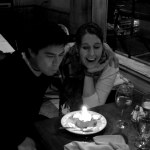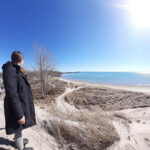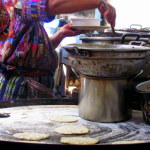What if we were solely responsible for our own health and well-being? As of late, I have been intrigued by the recent news story of Italian engineer, graphic artist and computer-hacker, Salvatore Iaconesi, and his novel approach to patient-centred healthcare.
After being diagnosed with a brain tumor, and thus being exposed to the feelings of dis-empowered and helplessness that one initiated into the medical system often experiences, he decided to take matters into his own hands. To take back control, Iaconesi hacked into his own medical records and created a website La Cura, where he posted them publicly, inviting the online community to share their advice, thoughts and inspiration. Trying to polish off my very rusty Italian, I’ve been browsing his site, mesmerized by the videos, blog posts and thousands of responses he has received from around the world.
He says, “[When you have a disease], you cease to exist; you become a patient. The doctors are talking about you, but not really about you,” expressing his frustrations with the feelings of exclusion and helplessness he experienced as a cancer patient. In the current medical model, patients hand over all control to medical professionals, unsure of what to do to have a positive impact on their own health except follow the advice of doctors. Rarely are patients involved in the treatment process; they aren’t provided with all the possible options, nor are they consulted for the wisdom that one possesses after having lived in the same body for the duration of their life. According to Salvatore Iaconesi, the experience was dehumanizing. So, rather than sit back, he decided to do what he does best: turn to the internet.
After posting his records online, interest in his case exploded; his story has been covered by international news agencies and followed by people around the world. In the Ted Talk available on his site, he outlines the results of his pilot project, which are nothing short of amazing. From his medical crowd-sourcing experiment he received:
600 poems
1 rock concert using his brain scan as a backdrop
A 15,000-person dialogue based around the healing stories and experiences of those who had been diagnosed or had a loved one diagnosed with cancer.
60 medical professionals, who contacted him, offering him medical advice, and even began collaborating together on his case.
50,000 suggested therapies, from the leading oncology treatment guidelines to the the most alternative forms of medicine.
1 sculpture of his brain tumour.
And more…
Using his online community as a source of informed empowerment, combined with his own research and discretion, Salvatore became a self-professed “expert in neuroscience and neurology”. With the help of the international online community, he created his own individualized treatment strategy consisting of surgery, chemotherapy, radiation, homeopathy, Chinese Medicine, herbal medicine and diet and lifestyle changes. So far, his tumour has stopped growing and, more importantly, he has felt a shift in the way the public views the field of medicine and their approach to becoming empowered when it comes to matters of their personal health.
I wonder if Salvatore Iaconesi, in reaching out through the internet, has not hit upon the future of collaborative healthcare. He provides us with a model of patient-participation and community collaboration, from actual medical professionals to individuals who can inspire and motivate with their personal stories and experiences.
I love this story because naturopathic doctors believe in empowering people through patient-education and the creation of individualized treatment protocols, in which the patient is at the centre. Perhaps cure crowd-sourcing can have a role in how medicine is practiced in the future, encouraging medical doctors, naturopathic doctors and lay people – from artists to fellow patients – to come together and create a community around the individual affected by disease. In doing so, I believe we can create a healthier society by encouraging people to become aware of their bodies and active in matters of their health.






